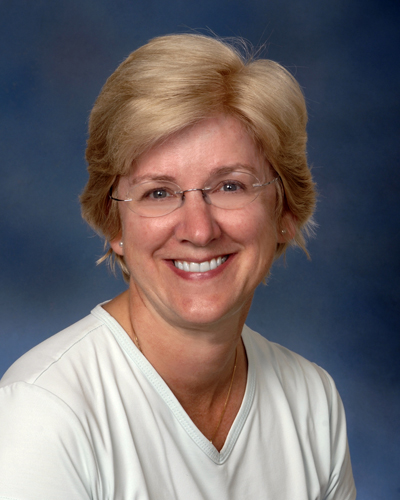Division Chief
Sheri Slezak, MD
Adjunct Professor
Our Nationally Recognized Program
Nationally recognized specialists from the University of Maryland Division of Plastic Surgery apply the latest technological advances and proven surgical principles to a broad range of plastic surgery problems. Our multidisciplinary approach uses the enormous talent and broad resources of an outstanding academic medical research institution to bring innovative treatments to our patients.
The Division of Plastic Surgery is at the forefront of research into vascularized tissue allotransplantation (VTA), a revolutionary advance in reconstructive surgery, affording a perfect "replacement part” for tissues compromised by disease or trauma. These techniques have been applied to the hand, face, abdominal wall, larynx and other body parts, offering hope to those who suffer from severe disfigurement for an improved quality of life. It is the only operation that has the potential to restore near-normal appearance in patients with socially crippling facial injuries, and offer the most complete functional restoration currently available for hand amputees.
Other innovative approaches to healing include tissue engineering to replace cartilage or bone. Stem cell research explores the use of fat and stem cells in fat to use in many ways including breast reconstruction. Advances are being made in craniofacial surgery and microsurgery and in ways to minimize downtime and maximize effect in cosmetic surgery. We are gaining new insights in the use of reconstructive flap surgery and developing endoscopic techniques in aesthetic and reconstructive surgery.
Educating the Next Generation of Physician Scientists
Since 1989, the University of Maryland has been part of a city-wide program to train the next generation of plastic surgeons in reconstructive, cosmetic, burn and trauma surgery.
Our highly competitive program attracts applicants from across the country and over fifty residents have been trained here to date. Additionally, Maryland is a training ground for U.S. Army, Navy and Air Force physicians in reconstructive techniques for American troops injured in battle. Advanced fellowships training in craniofacial surgery, burn techniques and microsurgery are provided at the R Adams Cowley Shock Trauma Center at the University of Maryland.
Research
Nationally recognized specialists from the University of Maryland Division of Plastic of Surgery apply the latest technological advances and proven surgical principles to a broad range of plastic surgery problems. Our multidisciplinary approach uses the enormous talent and broad resources of an outstanding academic medical research institution to bring innovative treatments to our patients. Areas of expertise in comprehensive plastic surgical reconstruction include:
- Burn reconstruction
- Complex wound management
- Extremity salvage
- Facial trauma reconstruction
- Cancer reconstruction
- Nerve and Hand Repair
- Trunk/abdominal wall reconstruction
- Pediatric plastic surgery including cleft lip and palate, limb malformation, ear-microtia and other anomalies
- Massive Weight Loss reconstruction
- Microsurgical and Cosmetic Surgical procedures
The Division of Plastic Surgery at the University of Maryland is at the forefront of revolutionary research into composite tissue allotransplantation (CTA) - the transfer of a composite tissue that may include skin, muscle, bone and nerve. CTA promises to be a revolutionary advance in reconstructive surgery, affording a perfect "replacement part” for tissues compromised by disease or trauma. These techniques have been applied to the hand, face, abdominal wall, larynx and other body parts, offering hope to those who suffer from severe disfigurement for an improved quality of life. It is the only operation that has the potential to restore near-normal appearance in patients with socially crippling facial injuries, and offer the most complete functional restoration currently available for hand amputees.
Other innovative approaches to healing include tissue engineering to replace cartilage or bone. Stem cell research explores the use of fat and stem cells in fat to use in many ways including breast reconstruction. Advances are being made in craniofacial surgery and microsurgery. We are gaining new insights in the use of reconstructive flap surgery and developing endoscopic techniques in aesthetic and reconstructive surgery. Advances are being made to minimize downtime and maximize effect in cosmetic surgery. These are just some of the ways our researchers are developing methods that will make significant discoveries in the field of plastic surgery.
Clincal Care
Please visit: http://umm.edu/programs/plastic-surgery

